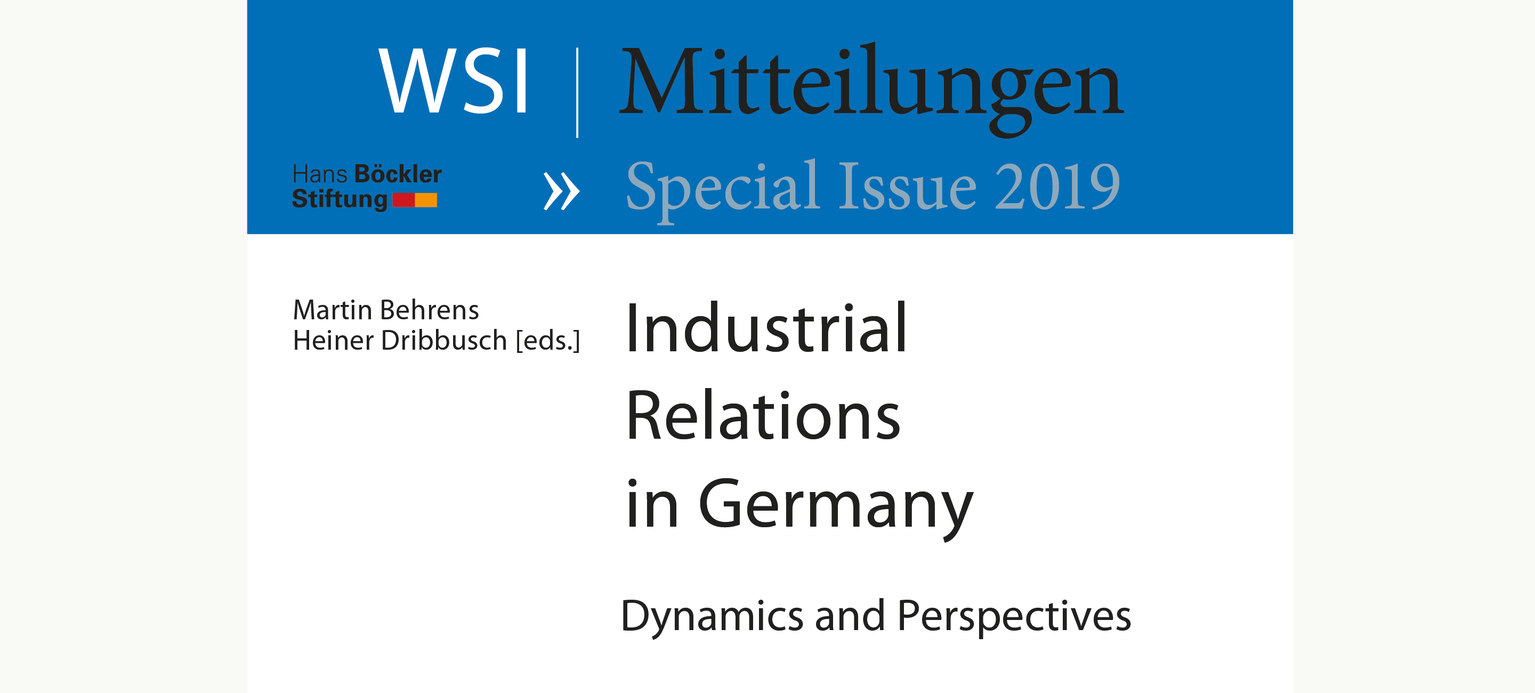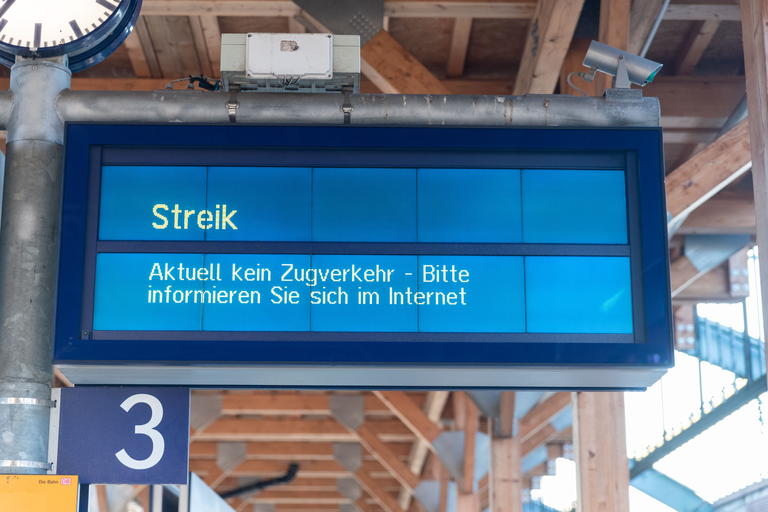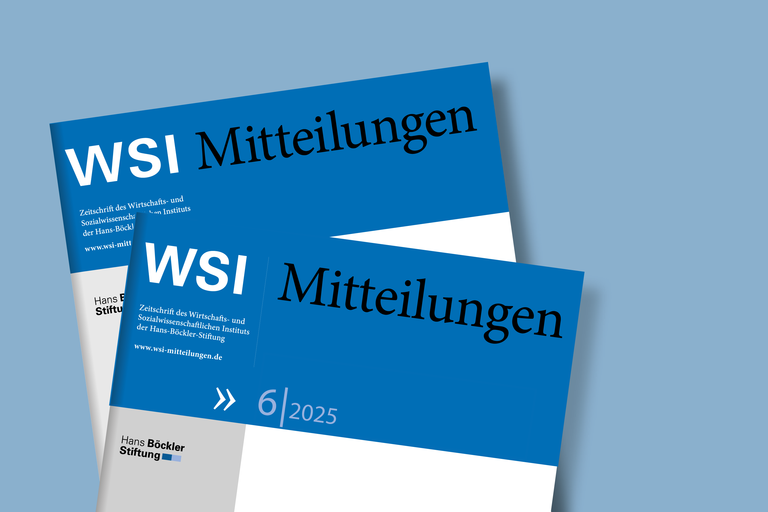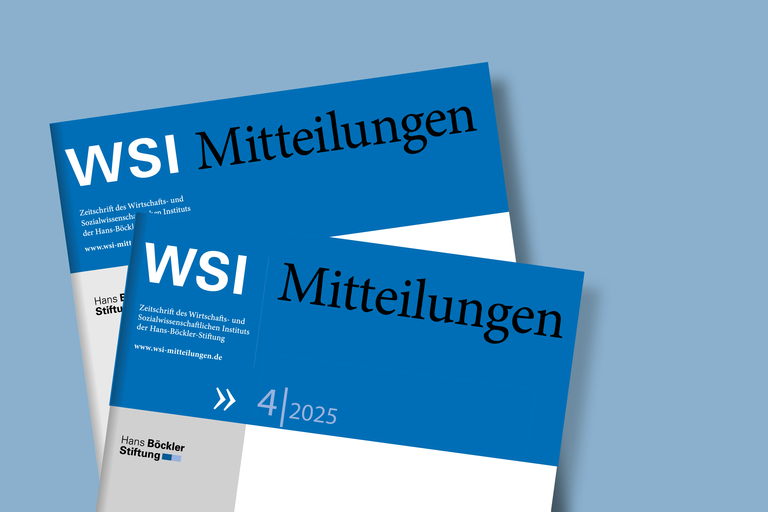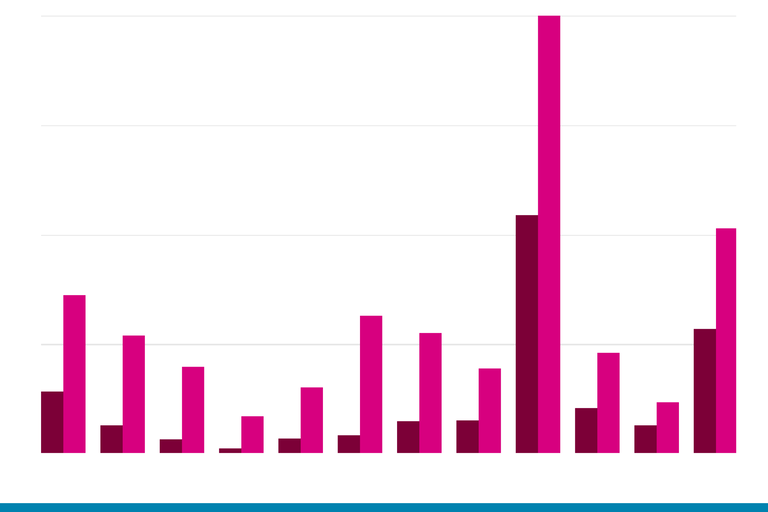Special Issue 2019: German Industrial Relations - Dynamics and Perspectives
The system of German industrial relations aroused lively interest following the corporatist crisis management of 2009/2010, which was credited with ‘Germany’s jobs miracle’. In 2019, it is apparent that although works councils and multi-employer collective bargaining are still alive, labour relations as a whole are undergoing substantial changes. It is the aim of this special issue to improve the understanding of these changes, and to open up new perspectives on both the theory and practice of industrial relations.
Nomos eLibary: WSI Mitteilungen Special Issue 2019
Table of contents (pdf)
WSI-MITTEILUNGEN Special Issue 2019, pp. 11-30
Thorsten Schulten
German Collective Bargaining – from Erosion to Revitalisation?
Abstract
Following a continuous decrease in levels of collective bargaining coverage for more than two decades, all relevant social actors in Germany now agree that something has to be done to reverse that trend. However, there are still rather different views among trade unions, employers’ associations and political actors about the right measures and instruments required for a revitalisation of collective bargaining. While the unions try to rebuild their organisational power and gain political support for the bargaining system, the employers demand further flexibilisation in order to make agreements more attractive for the companies. more...
WSI-MITTEILUNGEN Special Issue 2019, pp. 31-50
Martin Behrens, Heiner Dribbusch
Avoiding the Union at the Workplace
Abstract
Employer resistance to works councils is not a phenomenon that has been closely associated with German labour relations. While classic studies characterise the “German model” in terms of social partnership, more recent accounts seem to observe more diverse practices. Based on data provided by the WSI survey of paid union representatives (2012, 2015), this article investigates employer practices to obstruct or inhibit the election of works councils and analyses the diffusion of such strategies at the establishment level. more...
WSI-MITTEILUNGEN Special Issue 2019, pp. 51-72
Helge Emmler, Wolfram Brehmer
The Composition of German Works Councils
Abstract
Works councils must not necessarily be a perfect reflection of their workforces, but nor should they be a distortion. Where the social and demographic gap between works councils and their workforces is too large, this can potentially inflict an even worse level of representation on groups that are already poorly represented. The article begins with a representative overview of the make-up of works councils in Germany during the term of office that ran from 2014 to 2018 in a degree of detail that has only become possible through the data collected by the WSI Works Council Survey. This allows an in-depth analysis both of the socio-demographic composition and organisational features of works councils and the extent to which these diverge from their workforces. In particular, it highlights a “representation gap” for employees on fixed-term contracts and for women. more...
WSI-MITTEILUNGEN Special Issue 2019, pp. 73-94
Anke Hassel, Wolfgang Schroeder
Trade Union Membership Policy: the Key to Stronger Social Partnership
Abstract
The organising power of trade unions is the key to the future of social partnership. However, for several decades the organising power of German trade unions has been characterised by an eroding membership base, a fragmented membership structure and an enforcement crisis in collective bargaining policy. The article analyses the membership development in the unions of the German Trade Union Confederation (DGB) and argues for a strategic approach to membership policy. more...
WSI-MITTEILUNGEN Special Issue 2019, pp. 95-124
Heiner Dribbusch
New Militancy in a Changing Industrial Landscape
Abstract
For decades industrial conflict in Germany was dominated by disputes in metal manufacturing. Apart from two national strikes in the public sector, strike action in the service sector was a phenomenon the public did not take much notice of. Since the mid-2000s this picture has completely changed. It is most often nurses, childcare workers, train drivers, clinicians and other service workers who dominate the headlines when industrial action brings their problems and demands to broader attention. The article sketches the changes in the industrial landscape against which the shift of militancy to the service sector has taken place and explores the specific features of industrial action in the service sector. more...
WSI-MITTEILUNGEN Special Issue 2019, pp. 123-144
Daniel Seikel, Nadine Absenger
The Impact of the Jurisprudence of the Court of Justice of the European Union on Germany’s Collective Bargaining System
Abstract
How is the German model of industrial relations affected by European integration, particularly by the case law of the Court of Justice of the European Union (CJEU) ? What are the effects on the autonomy of collective bargaining ? The analysis of selected rulings shows that the impact of the Court’s jurisprudence is ambivalent. In the area of individual labour law, the rights of workers have been strengthened. In contrast, in the area of collective labour law, the Court has restricted the autonomy of collective bargaining. more...
Alle Schwerpunkthefte der WSI-Mitteilungen im Überblick
